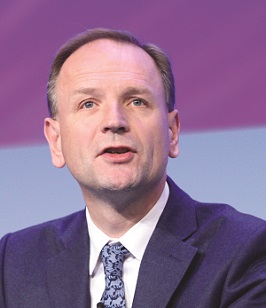News / GP forward view promises new funding and formula
 At the end of April, NHS England published its General practice forward view, which earmarked an extra £2.4bn a year for GP services by 2020/21. Spending on the services is currently £9.6bn and the extra funding will mean a 14% real terms rise over the period.
At the end of April, NHS England published its General practice forward view, which earmarked an extra £2.4bn a year for GP services by 2020/21. Spending on the services is currently £9.6bn and the extra funding will mean a 14% real terms rise over the period.
It added that it would also make a £508m sustainability and transformation plan (STP) package available to support practices, while clinical commissioning groups would also provide additional funding.
The STP package will include funding for service redesign (£246m), workforce (£206m) and practice resilience (£56m). The service redesign funding will include a requirement on CCGs to provide about £170m of practice transformational support.
Individual practices, GP federations and large groups of practices (super-partnerships) will be given support to redesign care and direct funding for improved access. There will be a new voluntary GP contract supporting integrated primary and community health services.
The workforce plan aims to double the growth rate in GPs – adding 5,000 GPs in the next five years – through new incentives for training, recruitment, retention and return to practice. There will also be funding for practice-based mental health therapists, nurses and managers.
As well as upgrades to practice premises, the forward view proposes allowing up to 100% reimbursement of premises developments, investment in technology to support appointment, consultation and workload management systems, and better record-sharing to support teamwork.
There is a commitment to reform the Carr-Hill formula, which is used to calculate the global sum paid to each practice. This is one source of income, based on the number of patients registered. It includes provision for the delivery of essential and additional services, staff costs and locum reimbursement. It does not include money for costs such as premises and information technology.
The document said NHS England was working with the British Medical Association to examine the impact of deprivation, age and other factors that influence practice workload. 
NHS England chief executive Simon Stevens (right) said: ‘If anyone 10 years ago had said: “Here’s what the NHS should now do – cut the share of funding for primary care and grow the number of hospital specialists three times faster than GPs”, they’d have been laughed out of court. But looking back over a decade, that’s exactly what’s happened. Which is why it’s no great surprise that a recent international survey revealed British GPs are under far greater pressure than their counterparts, with rising workload matched by growing patient concerns about convenient access. So, rather than ignore these real pressures, the NHS has at last begun openly acknowledging them. Now we need to act, and this plan sets out exactly how.’
Royal College of General Practitioners’ chair Maureen Baker said the plan meant general practice funding would account for more than 10% of NHS spending – the college has campaigned for the figure to be about 11%.
‘This is a huge and important step in the right direction and, if implemented correctly, our profession, the wider NHS and, most important, our patients will reap the benefits,’ she said.
Dr Baker also welcomed NHS England’s pledge to tackle the cost of GPs’ professional indemnity, rising due to the increasing number of claims and higher level of awards. The GP forward view dismissed suggestions that GPs be given Crown indemnity – giving patients who suffer as a result of clinical negligence no route to financial compensation. In July it will publish proposals on containing these costs; reducing individual costs for part-time GPs and others with special circumstances; and to enable new care models such as multispecialty community providers to take on corporate indemnity.
For more information, please visit NHS England's , General practice forward view page.
Related content
The Institute’s annual costing conference provides the NHS with the latest developments and guidance in NHS costing.
The value masterclass shares examples of organisations and systems that have pursued a value-driven approach and the results they have achieved.